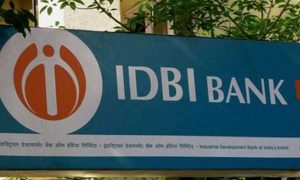Insurance Regulatory and Development Authority of India’s (IRDAI) proposed registration regulations may limit the number of new insurance companies being set up, as they specify certain restrictions on PE Funds and Non-Operative Financial Holding Companies (NOFHCs) to promote an insurance company, say industry experts.
IRDAI, on October 13, 2022, released an exposure draft for the Registration of New Insurance Companies. It will replace the existing IRDA (Registration of Indian Insurance Companies) Regulations, 2000 (“Registration Regulations”), once it gets notified. The draft is expected to bring much-needed clarity on different requirements for a new insurance licence such as shareholder lock-in periods, clarifying the number of insurance companies one investor can invest in, the manner in which Private Equity funds can invest in insurance companies, promoter requirements etc.
Read More: PhonePe enables UPI activation using Aadhaar-based OTP authentication
For example, experts say the regulator has proposed a few restrictions on Private Equity funds in case they wish to be a promoter in an insurance company. For example, even SEBI-registered PE funds can now no longer promote an insurance company, unless they complete 10 years of operations, raise at least $500 million and have invested in the financial sector in the past.
“These criteria for investment by a PE fund as a promoter are in addition to those specified under the PE Guidelines and may limit the playing field to only a handful of PE Funds who would meet the criteria to invest in the insurance sector as a “promoter, ”said Shailaja Lall Partner, Shardul Amarchand Mangaldas & Co.
If only a limited number of PE funds are able to meet the criteria for being a Promoter, it can limit the funds which can flow into an already capital-intensive insurance sector. “Globally, Private Equity Funds contribute capital disproportionately into the insurance sector and are also large shareholders in new insurance companies. This might ironically deter investment in the insurance sector despite the best intentions of IRDAI,” said an insurance expert on the condition of anonymity.
On the brighter side, IRDAI’s proposed changes in registration regulations for insurance companies are expected to encourage more participation from Private Equity players, assuming that similar regulations are also rolled out for existing players too. This will provide access to much-needed capital for both new and existing insurance players. While earlier, there was a separate set of guidelines to be referred to for investments by Private Equity Funds in Indian insurance companies, the exposure draft does away with the confusion and defines in very clear terms the manner in which Private Equity funds can bring in capital into insurance companies.
Read More: Home Loan EMIs: A 150-250 bps Hike In Interest Rates Leads To Installments Go Up By 8-21%
The proposed regulations have also met one of the key demands of existing insurance companies by increasing the limits for investment by a single investor to 25% from the existing 10% of shareholding. The cumulative limit for all investors has also been increased from 25% to 49%. This is expected to bring more capital into new and existing insurance companies from Private Equity players, who do not wish to play the role of a promoter.
Entry of Non-Operating Financial Holding Companies
Another key change in the proposed regulations is clarity around the role of Non-Operating Financial Holding Companies (NOFHC). As part of the exposure draft, IRDAI has also recognised Non-Operating Financial Holding Companies (NOFHC), which are entities governed by the Reserve Bank of India (RBI), as promoters for insurance companies. Currently, regulations do not specifically recognize NOFHCs as a category of eligible ‘Indian Promoter’.
The RBI regulations define NOFHCs as holding company for investments in all financial services entities of the group. The exposure draft proposes to expand the definition of ‘Indian Promoter’ to include NOFHCs registered with the RBI, to close this gap between IRDAI and RBI regulations.
Experts say this is a welcome addition and provides clarity on the role of NOFHCs in the insurance sector but a few provisions which have been added in the exposure draft can be considered restrictive in nature. For example, the draft prohibits the issuance of sweat equity or stock options to employees and directors of the NOFHC or in new SPVs.
“This goes against the Start Up India mission of the Government of India which is meant to encourage Indian entrepreneurs and professionals by relaxing rules on sweat equity and ESOP allocation. Global regulators, such as MAS in Singapore, are working in the direction of removing all restrictions on incentivising employees and entrepreneurs of companies through innovative concepts such as phantom shares. Any restriction on Sweat Equity or ESOPs would encourage more and more Indian entrepreneurs to relocate their head offices to places such as Singapore and Dubai, while depleting much-needed top management talent in India,” said a venture capitalist who doesn’t want to be identified.
The proposed regulations aim for higher availability of capital for the insurance sector with these changes, especially with an increase in the limit of investment as an individual investor to 25 per cent. There are, however, a few additional questions which have been raised by stakeholders for setting up new insurance companies in India.





































